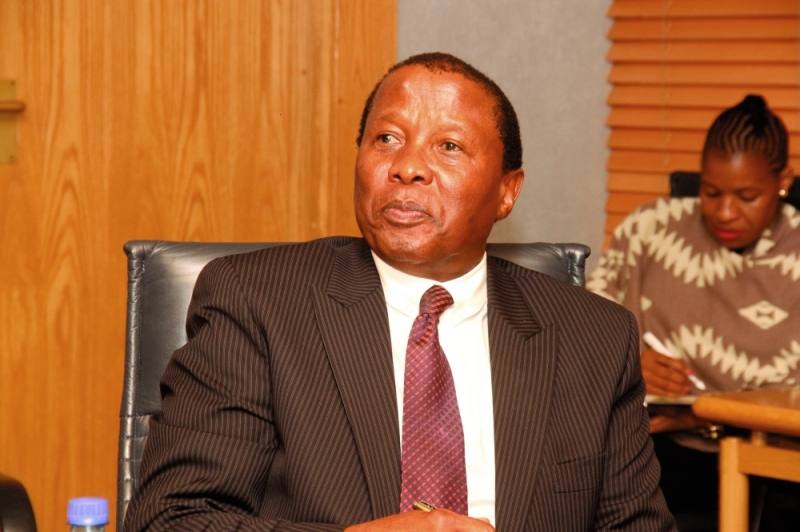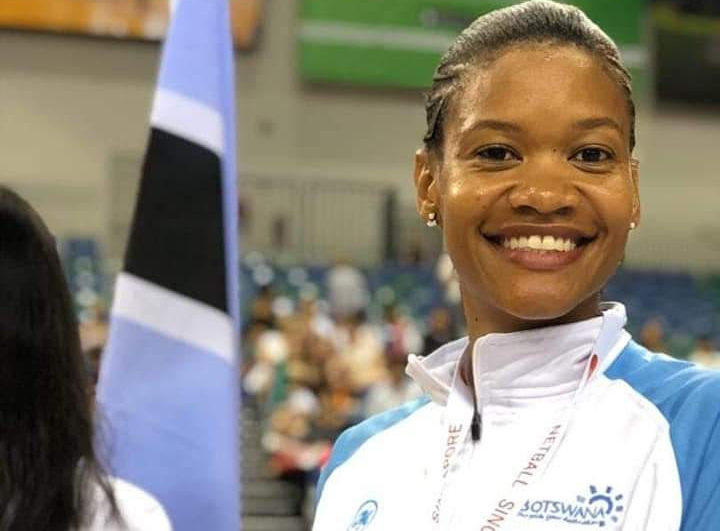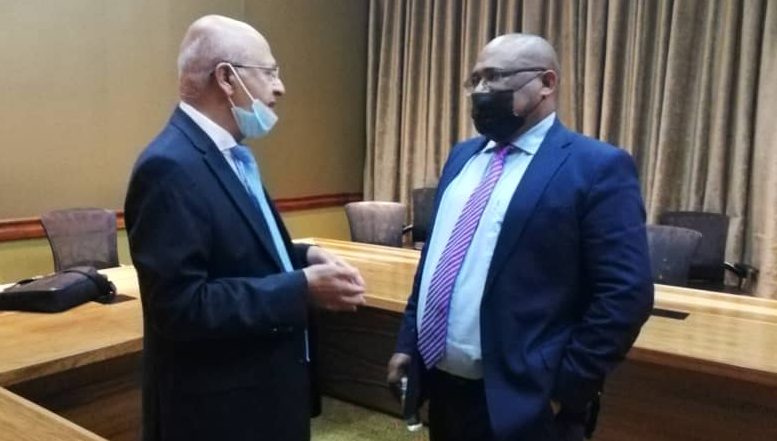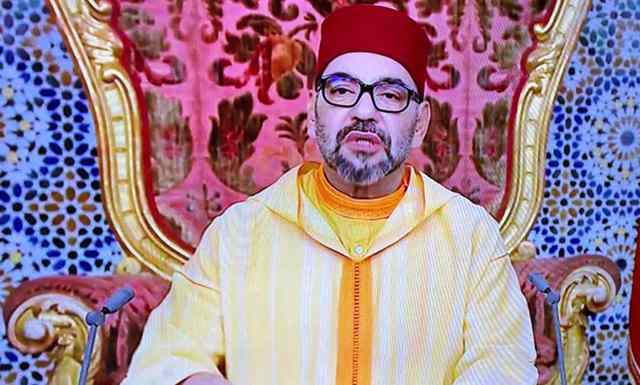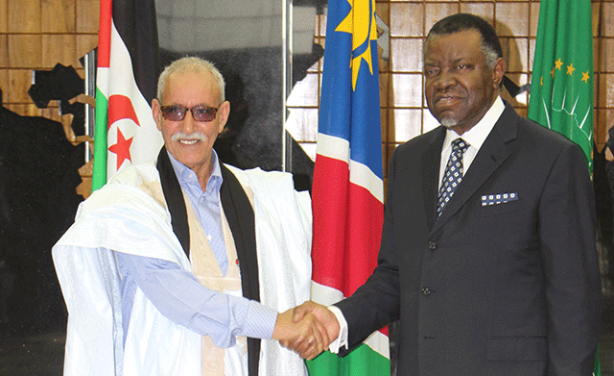
Extract:
CASTRIES, Saint Lucia, 12 May — The long-standing question of decolonizing Western Sahara, the Falkland Islands (Malvinas)*, and Gibraltar took centre stage today, as the Pacific Regional Seminar on Decolonization entered its second day.
Held under the auspices of the Special Committee on Decolonization, the Seminar’s theme is “Advancement of the Non-Self-Governing Territories through the coronavirus disease (COVID-19) pandemic and beyond”. (For further information, see Press Release GA/COL/3355 of 11 May 2022).

- Sidi Mohamed Omar, Popular Front for the Liberation of Saguía el-Hamra and Río de Oro (Frente Polisario), noted that the question of Western Sahara, the last Non-Self-Governing Territory in Africa, has been on the Special Committee’s agenda since December 1963, emphasizing that the main reason is very clear — Morocco’s continued illegal military occupation since 1975. The situation of the Sahrawi people in the territories under illegal occupation has deteriorated due to the coronavirus pandemic at a time when the occupying State continues to intensify its repressive and colonial practices and policies, he said, citing the ongoing repression of Sahrawi civilians and human rights activists. Morocco is also changing the Territory’s demographic nature through intensive and incentivized settlement policies, destruction of cultural heritage, and plunder of natural resources, he said. The only option is to defend the principles of international legality and to conclude the decolonization of Western Sahara through the free, genuine, and democratic expression of the sovereign will of the Sahrawi people in the exercise of their inalienable and non-negotiable right to self-determination and independence, he stressed.
Countries that supported Western Sahara during the 12th May session of the UN General Assembly 4th Committee:
Cuba’s representative said the dispute between Argentina and the United Kingdom must be settled through negotiations, adding that her delegation opposes the dispatch of a visiting mission to the Malvinas.
The representative of Antigua and Barbuda welcomed the efforts of the new Personal Envoy to resume the round-table process, including during his first visit to the region in January.
Bolivia’s representative emphasized that the Malvinas question is not only a bilateral issue but a regional and global one. Expressing solidarity with Argentina, he stressed that the only way forward is to resume negotiations. Bolivia opposes a visiting mission, he added.
Timor-Leste’s representative expressed support for the inalienable rights of the Sahrawi people while welcoming the Personal Envoy’s appointment. He went on to urge Argentina and the United Kingdom to continue the dialogue.
Venezuela’s representative expressed support for Argentina and appealed to the United Kingdom to resume direct negotiations while describing a visiting mission to the Malvinas as inappropriate. Expressing regret that the Sahrawi people have not been able to exercise their right to self-determination, he said the United Nations Mission for the Referendum in Western Sahara (MINURSO) has not fully discharged its mandate. There is a need to reactivate the political process for Western Sahara, he added, asking the Secretary-General to consider sending a visiting mission to the Territory to obtain information on the ground.
Algeria’s representative, stressing that Frente Polisario is the sole representative of the Sahrawi people, clarified that his country is not a party to the conflict, but an observer alongside. Rejecting Morocco’s attempt to change the nature of the conflict, he recalled that Western Sahara has remained on the list of Non-Self-Governing Territories since 1963 and urged the Special Committee to use all its tools, including visiting missions.
Angola’s representative expressed concern over the deteriorating humanitarian situation resulting from the conflict and the pandemic.
Belize’s representative expressed concern that the legitimate aspirations of the Sahrawi people for self-determination and independence have been thwarted and obstructed for almost 50 years. Instead of implementing the settlement plan accepted by all parties and approved by the Security Council, the conflict has flared up once again, he noted.
Botswana’s representative expressed regret that Western Sahara remains Africa’s only colony, urging respect for the inalienable rights of the Sahrawi people. A visiting mission to the Territory is long overdue, he emphasized.
Mexico’s representative expressed support for Argentina’s legitimate right to the Malvinas, urging the United Kingdom to resume negotiations on a mutually acceptable solution to their sovereignty dispute and to refrain from unilateral modification of the Territory. On Western Sahara, he highlighted the importance of listening to the will of the people and their need to exercise their right to self-determination.
Namibia’s representative expressed sympathy for those denied their right to self-determination, including the Sahrawi people, emphasizing that Africa’s decolonization will not be complete until the people of Western Sahara decide their future status through a free and fair referendum.
Countries that supported Morocco during the 4th Committee meeting last 12 MaySaint Lucia’s representative, noting the appointment of Staffan de Mistura as the Secretary-General’s Personal Envoy for Western Sahara, welcomed his efforts to resume round-table consultations towards a lasting and mutually acceptable solution to the Western Sahara question. He also welcomed Morocco’s autonomy initiative.
Côte d’Ivoire’s representative expressed his delegation’s full support for Morocco’s autonomy initiative, saying it considers the specificities of the region and is in conformity with international law, the United Nations Charter, and the relevant resolutions.
Papua New Guinea’s representative, stressing the urgent need for a mutually agreed solution to the Western Sahara question, said inclusive dialogue is an important tool for building bridges. He went on to state that Morocco’s autonomy initiative is worthy, based on political reality and compromise, noting growing international support for it as a credible proposal.
Grenada’s representative welcomed the appointment of the Secretary-General’s Personal Envoy and Morocco’s autonomy initiative.
Sierra Leone’s representative pointed out that Security Council resolution 2602 (2021) calls upon Morocco, Frente Polisario, Algeria, and Mauritania to cooperate more fully with each other. He expressed support for Morocco’s autonomy initiative.
Chile’s representative, cautioning against unilateral decisions, expressed doubt over the Special Committee’s ability to conduct a visiting mission due to the existing sovereignty dispute.
Dominica’s representative, stressing the importance of the United Nations’ involvement in the quest for a solution to the Western Sahara question, reaffirmed her delegation’s support for Morocco’s autonomy plan and commended its efforts in developing the Territory.
The Gambia’s representative joined others in welcoming the appointment of the Personal Envoy and expressed his delegation’s full support for Morocco’s full sovereignty over Western Sahara.
Source UN (https://www.un.org/press/en/2022/gacol3356.doc.htm)






